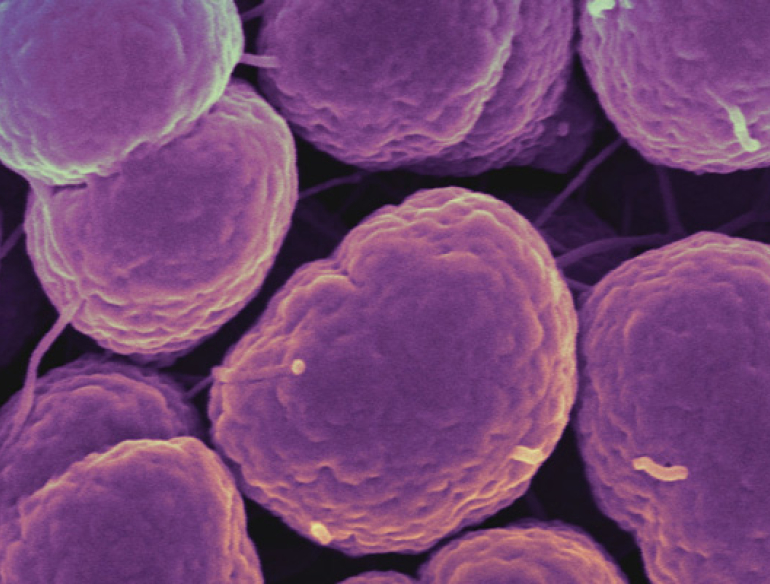The Kirby Institute, UNSW Sydney and the Australian Research Council launched a new national research hub working to combat antimicrobial resistance.
The virtual launch event was chaired by Chief Investigator and Hub Director, Professor Rebecca Guy, with guest presentations from Professor Attila Brungs, UNSW Vice Chancellor and President, Professor Sean Emery, Senior Vice Dean, UNSW Medicine and Health, and Ms Judi Zielke, Chief Executive Officer of the Australian Research Council.
Antimicrobial resistance (AMR) is one of the greatest scientific challenges of the 21st century. It occurs when pathogens, such as bacteria and fungi, no longer respond to drugs that are intended to kill them.
The Industrial Transformation Research Hub to Combat Anti-microbial Resistance is a world-leading collaboration between industry, researchers, and the community to tackle the global challenge of AMR. “We are proud of the Hub, which has built on strong working collaborations for years between universities, industry partners, and stakeholders, both nationally and internationally. It formalises what aims to be transformational for its response to antimicrobial resistance,” said Prof Guy.
Prof Guy said that the AMR Hub aims to “take a holistic approach through the development of a range of new molecular diagnostic tests to ensure we use antibiotics more precisely, while at the same time improving the processes for identifying and optimising of both old and new antibiotics, supported by social science, modelling, health economics and epidemiological research.”
Joining the official opening of the Hub, Prof Brungs emphasised the important role of collaboration in tackling 21st century challenges. “We must not take for granted the safe and effective antibiotics that have changed the face of public health over the decades – changed the way we live our lives – and if that way of life is to continue, we must bring together the vast expertise in your various networks.”
Prof Emery reflected on the Kirby Institute’s almost four-decade track record in addressing global health problems in Australia and globally, “from the platform of developing scale, breadth and depth of the intellectual entrepreneurial talent that is brought to bear with which to address the issue that you are seeking to resolve. Big problems need big multidisciplinary teams in order to address them, and in that regard, I salute the accomplishment of the consortium that you and your colleagues have put together.”
On behalf of the Minister for Education, The Hon Jason Clare MP, Ms Zielke commented that the ARC-funded Hub “encourages Australia’s best researchers in training the future workforce. As we all know, collaboration is critical to us achieving these major challenges that we have, and working with industry, with other researchers and with international partners is great to see.”
Prof Guy then explained the four key themes within the Hub: Developing novel diagnostics to determine AMR status in real-time; Optimising STI treatments; Developing novel diagnostics to determine the presence of active bacterial infections; and Engaging Stakeholders to Optimise AMR Innovation. Together with six partner universities and 13 partner organisations from a range sectors, the Hub offers a “holistic approach to tackling AMR.”
In officially launching the Hub with Prof Guy, Ms Zielke said, “It’s no small feat to have brought together great researchers, universities and industry partners and a research program that is addressing such an important global challenge. I wish you every success in completing that program over the next five years and seeing its impact.”
Header Image
Image credit: National Institute of Allergy and Infectious Diseases, National Institutes of Health.
